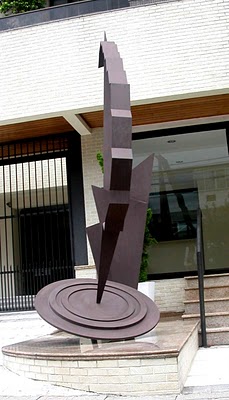[Who taught thee first to sigh?]
Who taught thee first to sigh, alas, my heart?
Who taught thy tongue the woeful words of plaint?
Who filled your eyes with tears of bitter smart?
Who gave thee grief, and made thy joys to faint?
Who first did paint with colors pale thy face?
Who first did break thy sleeps of quiet rest?
Above the rest in court who gave thee grace?
Who made thee strive, in honor to be best?
In constant truth to bide so firm and sure?
To scorn the world, regarding but thy friends?
With patient mind each passion to endure?
In one desire to settle to the end?
Love then thy choice, wherein such choice thou bind
As nought but death may ever change thy mind.
Were I a king
Were I a king I could command content ;
Were I obscure, unknown should be my cares;
And were I dead, no thoughts should me torment,
Nor words, nor wrongs, nor loves, nor hopes, nor fears.
A doubtful choice, of three things one to crave,
A kingdom, or a cottage, or a grave.

Edward de Vere, 17th earl of Oxford, born April 12, 1550, Castle Hedingham, Essex, Eng.died June 24, 1604, Newington, Middlesex
English lyric poet and patron of an acting company, Oxford's Men, who became, in the 20th century, the strongest candidate proposed (next to William Shakespeare himself) for the authorship of Shakespeare's plays.
Succeeding to the earldom as a minor in 1562, Oxford lived for eight years as a royal ward under the care of William Cecil (later Lord Burghley) and in December 1571 married Burghley's daughter, Anne Cecil. Along the way he studied at Queens' College and St. John's College, Cambridge. By the early 1580s his financial position had become very straitened, perhaps chiefly through his lack of financial sense. His younger children were provided for by Burghley, with whom he remained friendly even after Anne's death (June 1588) and his own remarriage in 1591 or 1592. In 1586 Queen Elizabeth granted him an annuity of £1,000.
He was never appointed to any important office or command, though he was named on the commissions of some noted trials of peers and was said to have been made a privy councilor by James I. It has therefore been suggested that the annuity may have been granted for his services in maintaining a company of actors (from 1580) and that the obscurity of his later life is to be explained by his immersion in literary pursuits. He was indeed a notable patron of writers. He employed John Lyly, the author of the novel Euphues, as his secretary for many years.
That Oxford might be the author of Shakespeare's plays was first advanced in a major way in “Shakespeare” Identified in Edward de Vere, the Seventeenth Earl of Oxford (1920), a study by J. Thomas Looney. Looney argued that there was a biographical similarity between Oxford and both Bertram (in All's Well That Ends Well) and Hamlet and that Oxford's poems resembled Shakespeare's early work. Oxford's interest in the drama extended beyond noble patronage, for he himself wrote some plays, though there are no known examples extant. His 23 acknowledged poems were written in youth, and, because he was born in 1550, Looney proposed that they were the prelude to his mature work and that this began in 1593 with Venus and Adonis. This theory is supported by the coincidence that Oxford's poems apparently ceased just before Shakespeare's work began to appear. A further claim is that Oxford assumed a pseudonym in order to protect his family from the social stigma attached to the stage and also because extravagance had brought him into disrepute at court. A major difficulty in the Oxfordian theory, however, is his death date (1604), because, according to standard chronology, 14 of Shakespeare's plays, including many of the most important ones, were apparently written after that time. The debate, however, remained lively in the late 20th century.









1 comment:
Lovely poems.CINDY
Post a Comment